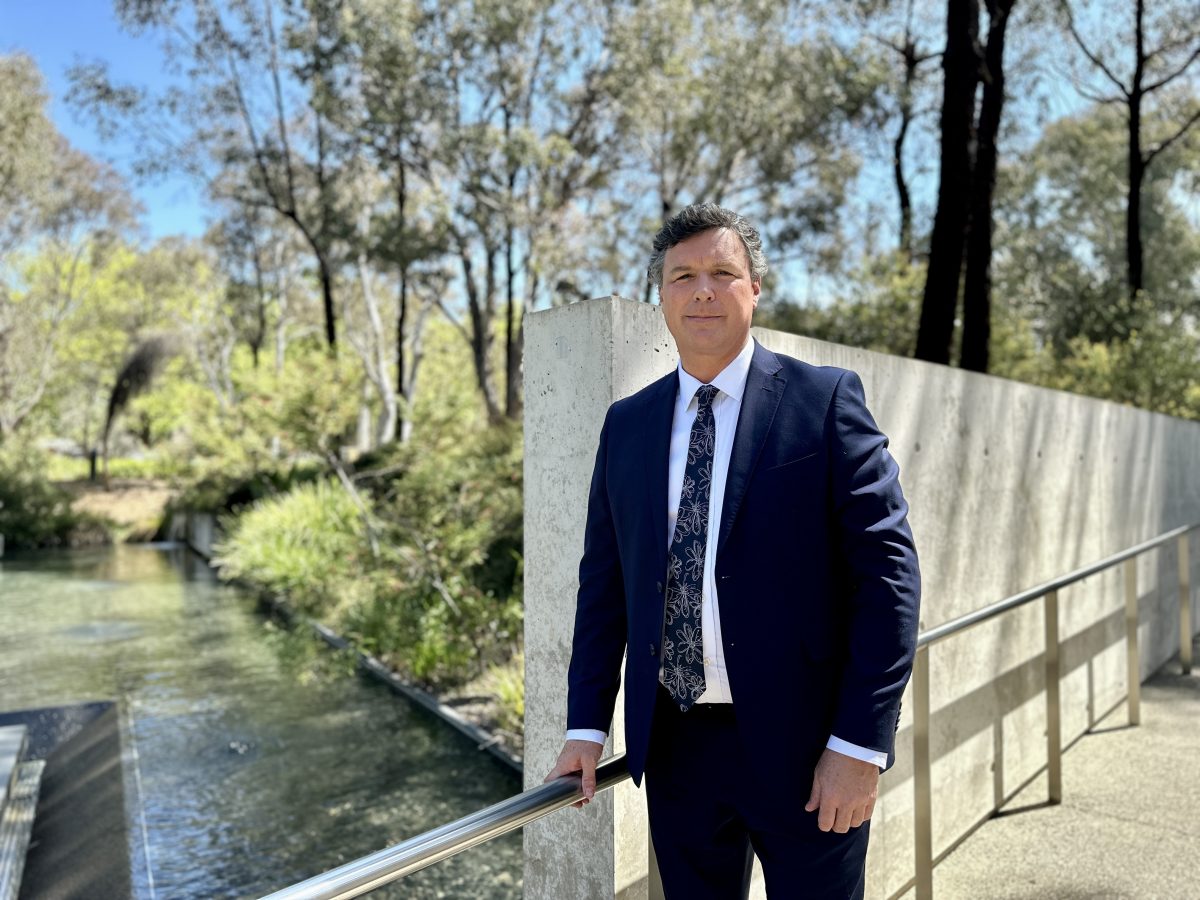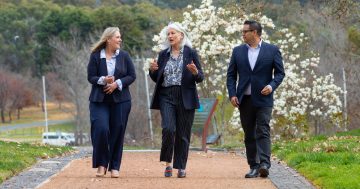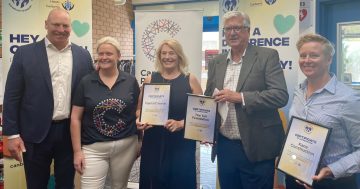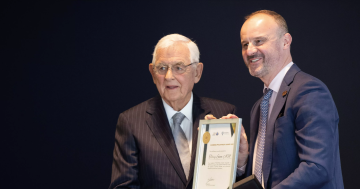
Community Foundations Australia CEO Ian Bird was keynote speaker for Hands Across Canberra’s annual charity lunch on Wednesday (16 October). Photo: James Coleman.
The CEO of Community Foundations Australia says there is a lesson for charities across the country to learn from what’s happening in Canberra.
Ian Bird, formerly an Olympic hockey player and CEO of Community Foundations Canada, was the keynote speaker for Hands Across Canberra’s annual charity lunch on Wednesday (16 October).
Founded in 2010, Hands Across Canberra works with and helps to raise funds for more than 350 local charities, including Cancer Council ACT, Communities@Work, Menslink, Lifeline Canberra and the St Vincent de Paul Society Canberra/Goulburn – to name just a handful.
Since its founding in 2010, Hands Across Canberra has also raised $5.7 million for nearly 367 community projects “aimed at making a difference to some of our most vulnerable people”.
The foundation also administers the Chief Minister’s Charitable Fund on behalf of the ACT Government.
Mr Bird said these sorts of figures couldn’t have been achieved elsewhere.
“Three-hundred-and-fifty charities cultivated a relationship. Three-hundred-and-fifty. Many of you are here. You think that’s just happening in every community around Australia? Around Canada? It’s not,” he told the audience in the Gandel Hall.
“It’s that deeply woven relationship between your community’s foundation and the relationship with those that are doing the front-line work.”

The Hands Across Canberra 2024 Annual Charity Lunch was held in the Gandel Hall. Photo: James Coleman.
Community Foundations Australia is the peak body for the country’s network of community foundations, now numbering more than 40.
Community foundations work like a community superannuation fund, each year passing on earnings from a permanent endowment fund in the form of grants to charities.
Federal law reforms are expected to make this process easier.
“Parliament has adopted legislation specifically for community foundations that allows them to be available to all potential donors and to be able to distribute resources to all possible eligible community organisations,” Mr Bird explained after his address.
“Before, that wasn’t the case – there was a limit on who could contribute to community foundations and there was a limit on which organisations they could then support.
“Now, it’s just going to be a lot easier for the community to come together to kind of create the legal container to govern it.”
It already appears to be working.
“There were 28 community foundations when the new legislation was introduced [in September 2023], legislation that recently has been moved through the house and adopted, and in that time, there are now 40 community foundations.”

Hands Across Canberra CEO Genevieve Jacobs with HelpingACT’s Mohammed Ali. Photo: Emmanuel Rodriguez.
Mr Bird said this brings Australia more in line with Canada, where about 250 community foundations worth more than $10 billion popped up within 10 years.
“People are wanting to come together, draw their resources together, increase the effectiveness of their giving by working hand in hand, aligning their resources to the benefit of the community.”
He later told Region, “I think the unique thing about Canberra is how naturally the collaboration forms and that the first instinct is to work together, and so your involvement with the community foundation has a kind of led to a snowball effect, to use a Canadian expression.
“The important thing is to continue with that approach – you’ll have a far greater impact.”





















